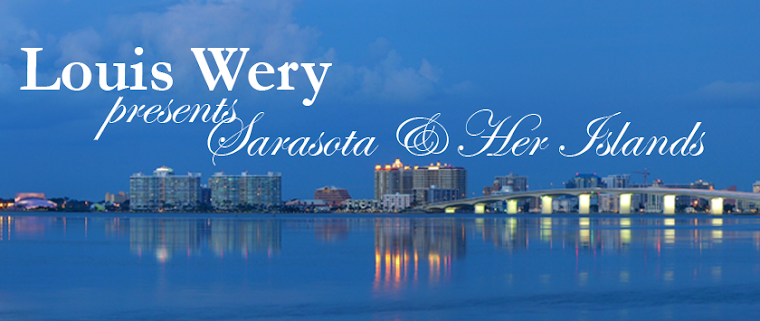 Sarasota has long been considered the cultural center of Southwest Florida. For a city its size, Sarasota has a definite cosmopolitan flair, due in part to its numerous theaters, museums, festivals, public and private art galleries, restaurants and shopping areas.
Sarasota has long been considered the cultural center of Southwest Florida. For a city its size, Sarasota has a definite cosmopolitan flair, due in part to its numerous theaters, museums, festivals, public and private art galleries, restaurants and shopping areas.It's an eclectic town, gathering its inspiration from an international influence. Casual yet discriminating, Sarasota has managed to corner the best of everything while maintaining an outdoorsy, friendly atmosphere.
Much of the credit for Sarasota's commitment to the arts has to go to John Ringling, who first came here in 1912 while searching for a winter headquarters for his circus.
In the mid-1920's Ringling built an ornate 30-room residence complete with marble floors and wrought-iron balconies. Styling it after the Doges Palace in Venice, he named it Ca'd'Zan --House of John.
Ringling traveled the globe searching for art treasures, and built on his property a monumental gallery in which to display them. With its ornamental gardens, fountains and statuary, the gallery resembles a 15th-century Italian villa.
Today these buildings are part of the Ringling Museums complex, which is open to the public and houses a collection of more than 1,000 paintings, as well as hundreds of pieces of sculptures, furniture, coins, clocks, tapestries and musical instruments.
Among the artists represented in the Ringling's collection are such old masters as Rembrandt, Rubens, El Greco, and Gainsborough, as well as a contemporary collection that has been added since Ringling's death.
Also located in Sarasota is the Ringling School of Art and Design, which has a national reputation for training students in the visual arts. It's ranked in the top tier with Pratt, Rhode Island School of Design and some of the other schools in the country. Founded in 1931, the school is the oldest independent institution of art and design in the southeast.
In recent decades, the citizens of Sarasota have built on Ringling's foundations, adding such cultural showcases as the Van Wezel Peforming Arts Hall, an elegant setting for symphony concerts, Broadway musicals and international artists. Sarasota also has its own opera company, which employs world renowned singers, a full orchestra, and performs in its own theater.
For more natural beauty, the Selby Botanical Gardens provide room for a quiet stroll.
Golf was first introduced here in 1885, making Sarasota the birthplace of American golf. Throughout the area are 33 golf courses, including such fine courses as The Concessions, The Founder's Club, University Park Country Club, and Lakewood Ranch Golf & Country Club.
Sarasota is a water wonderland, offering all kinds of water recreation, including boating, water-skiing and wind surfing. It is definitely a world class paradise to savor a luxury lifestyle of the finest vintage with beautiful sunsets, rippling waters just at your doorstep. The time to come is now since tomorrow might be to late...
For more information, please call:
Louis Wery, Broker Associate, CIPS, CRS, ABR, LHMS
Coldwell Banker Residential Real Estate, Inc.
201 Gulf of Mexico Drive, Suite One
Longboat Key, Florida 34228 USA
Direct Line: 1-941-232-3001



